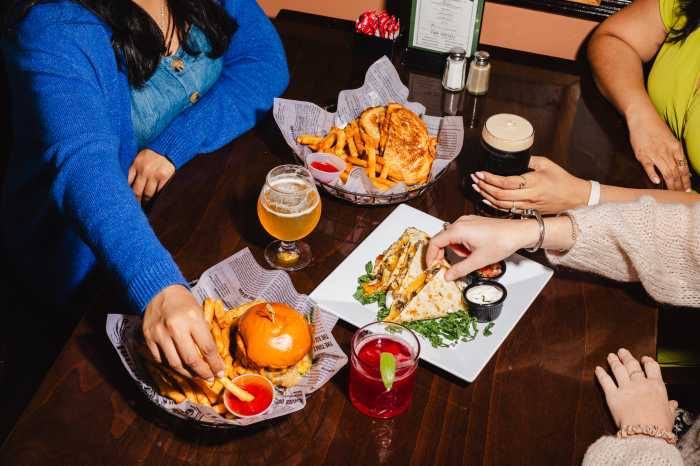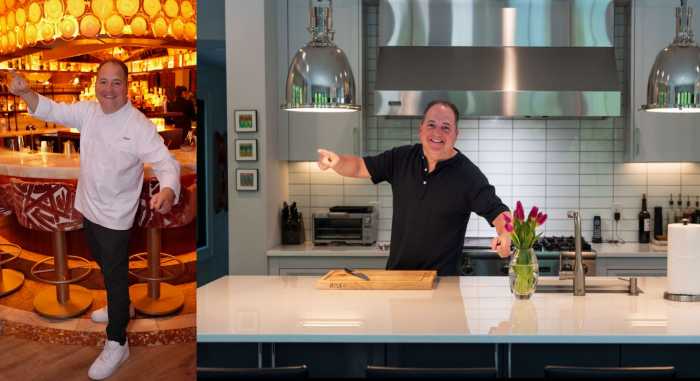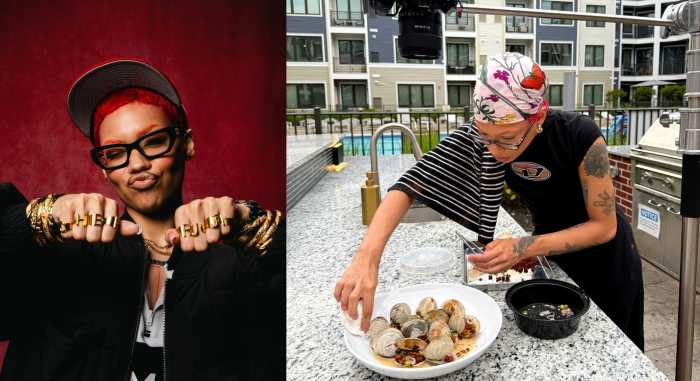When Avocaderia co-founder Alessandro Biggi, 30, went on “Shark Tank” to pitch an investment in his all-avocado café, he had no reservations about using his Italian accent to charm the judges.
“My accent, I can’t remove it, so why not play with it? I might as well use it as a way to make myself more likable to the “sharks,” said the Tuscany-native, who secured $400,000 in exchange for a 20 percent share of his 10-month-old business on the Feb. 11 episode of the ABC reality TV show.
Avocaderia, which sells avocado-based toasts, smoothies, salads and guacamole out of a millennial-friendly stall at the Industry City food hall in Sunset Park, had already been poised for expansion. With money from what Biggi told the “Shark Tank” panel was a six-figure cookbook deal with Houghton Mifflin Harcourt, the former business consultant and his two partners are opening a second location in the Terminal Warehouse in Chelsea this April or May.
But the team isn’t planning on ending their avocado domination there, pitchman Biggi explained. They aim to launch 20 locations in New York City and then branch out into Los Angeles, San Diego, Miami and Texas. Biggi, Alberto Gramigni and Francesco Brachetti also expect their fledgling company to do a whopping $4.3 million in business next year, said Biggi, who presented the “sharks” with tastes of Avocaderia’s best-sellers, like its Mediterranean avocado toast with olive tapenade, cherry and sun-dried tomatoes, feta and an Egyptian pistachio and spice blend.
(Of his initial discovery of the wonders of avocado mash on bread, Biggi said, kissing his fingers, “Man, it was delizioso!”)
The investors snapped all the eats — and Biggi’s accent — right up, with QVC queen Lori Greiner especially enamored but ultimately backing out of an investment because she’s “not a huge avocado fan.”
Ultimately, it was real estate titan Barbara Corcoran and businessman Mark Cuban who decided to take a bite out of Biggi’s “ripe” proposal, each pitching in $200,000 for 10 percent.
Corcoran was certainly a target going onto the show, Biggi tells us, “because . . . real estate is so important in the restaurant business and especially here in New York, it’s so hard to find good real estate.”
And Cuban, he adds, “is a target for everybody, because . . . he’s a self-made entrepreneur and billionaire now. That’s definitely someone you want on your team.”
What clinched the deal?
In addition to his company’s eye-catching branding, Biggi credits the win to honesty. During his upbeat, energetic presentation, the entrepreneur admitted that one of the reasons he fell hard for the easily prepared avocado is that he’s “not the best chef out there, although I should be, because I’m Italian.”
“I think (the judges) also shared the vision that it’s a big opportunity in terms of spreading this culture about eating better and at the same time enjoying what you’re eating,” continues Biggi, who maintains that the avocado craze driving consumption up for the past decade isn’t going anywhere.
“What’s we’re seeing right now is what we like to call a movement,” Biggi says. “We’ve been pioneering this movement. That’s why there are other avocado restaurants and bars opening around the world” — including a new competitor on the Lower East Side, Avocado Appetit — “which I think is amazing.” (Asked about Avocaderia’s Manhattan neighbor, the alligator pear evangelist says competition is normal, and his company, which he says made $75,000 last month and has been profitable since its second month, will continue to focus on keeping its food quality standards high.)
Avocaderia plans to use its new infusion of green to lock down a third location and build out its staff, Biggi says.
Personally, he hasn’t yet tired of the fatty, green fruit: “I’m not able to eat more than one or two a day, because I think it’s part of a balanced diet, but for lunch, it’s basically every day.”































